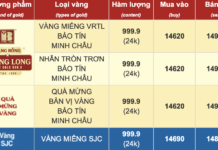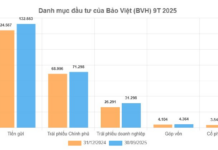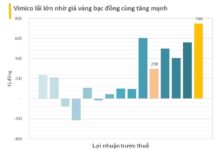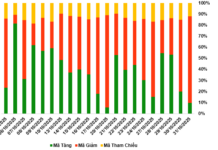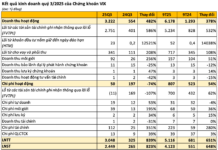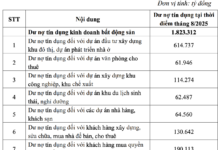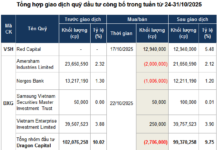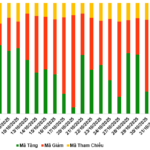The Ministry of Labor, Invalids, and Social Affairs has issued Circular 06/2024/TT-BLDTBXH amending and supplementing a number of articles of Circular No. 26/2016/TT-BLDTBXH guiding the management of labor, salaries, and bonuses for employees of state-owned enterprises and Circular No. 27/2016/TT-BLDTBXH guiding the regime Policies on salaries, bonuses, and allowances for managers of state-owned enterprises.
The new circular supplements the provisions on salary scales, salary tables, and allowances for employees of limited liability companies with one member wholly owned by the State.
Accordingly, the levels in the salary scales, salary tables, and allowances are decided by the company. The wage fund (determined on the basis of the total annual wages of all employees) must not exceed the planned wage fund for the employees.
“When amending, supplementing, or formulating and promulgating new salary scales, salary tables, and allowances, the company must consult the opinion of the representative organization of employees at the grassroots level and organize dialogues at the workplace in accordance with the provisions of the Labor Code and guiding documents. The company must report to the representative of the owner for opinions and make it public at the company before implementation,” the Ministry of Labor, Invalids, and Social Affairs guides.
In case the company makes a loss or has no profit, the average wage is calculated based on the wage level in the labor contract. For managers and full-time controllers, the wage level will be decided by the members’ council or the chairman of the company but must not exceed the planned wage fund for this object.
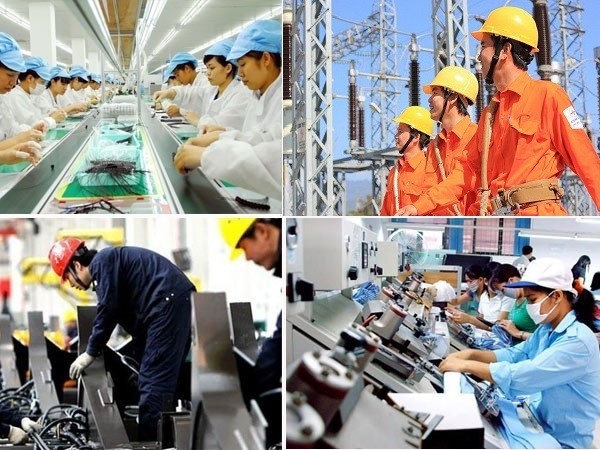
The Ministry of Labor, Invalids, and Social Affairs guides salary calculations for employees in state-owned enterprises. (Illustrative image: VGP)
When the company’s ranking changes or the managers and full-time controllers change their positions or titles, the wage level will be calculated according to the new position or title, without retaining the wage level of the old position.
If the company’s profit is higher than planned, employees and managers will be applied an increased wage coefficient. For non-profit companies, when determining wages, the profit indicator is calculated as total revenue minus total expenses.
According to data from the Ministry of Finance, by the end of 2022, there were about 478 state-owned enterprises in the country with 100% state-owned capital and about 198 enterprises with the state as the dominant shareholder.
State-owned enterprises with 100% state capital are currently focusing on activities in a number of sectors and fields such as: Defense and security, accounting for about 17%; Agriculture, forestry, and hydraulic works account for 40%; Lottery activities account for 13%; Public utilities (urban, lighting, water supply, and drainage…) account for 14%; Activities in other sectors and fields combined with production and business account for 16%.
Enterprises with 100% state capital are holding about 7% of total assets and 10% of owners’ equity of all enterprises in the market, 25.78% of total capital for production and business, and 23.4% of the value of fixed assets and long-term financial investments of enterprises. State-owned enterprises contribute about 28% of the state budget revenue, attract about 0.7 million employees, accounting for about 7.3% of the labor force of the entire enterprise sector.
Prime Minister discusses investment, production, and business with 19 corporations and conglomerates
On the morning of February 5th, Prime Minister Pham Minh Chinh chaired a working conference with the State Capital Management Committee in Enterprises and 19 groups and corporations to discuss the implementation of production and business activities in 2024, as well as promoting investment for economic and social development.
Empower Decentralization: Corporations and Conglomerates taking Ownership and Accountability
The Ministry of Planning and Investment is finalizing the consultation process on the draft Decree amending and supplementing certain provisions of Government Decree No. 10/2019/ND-CP regarding the implementation of the rights and responsibilities of state-owned enterprise representatives. The draft decree, which aligns with the Prime Minister’s directive to enhance decentralization and delegation of authority, will be submitted to the Government soon. Under the proposed amendments, conglomerates and state-owned corporations will have more autonomy and accountability.










